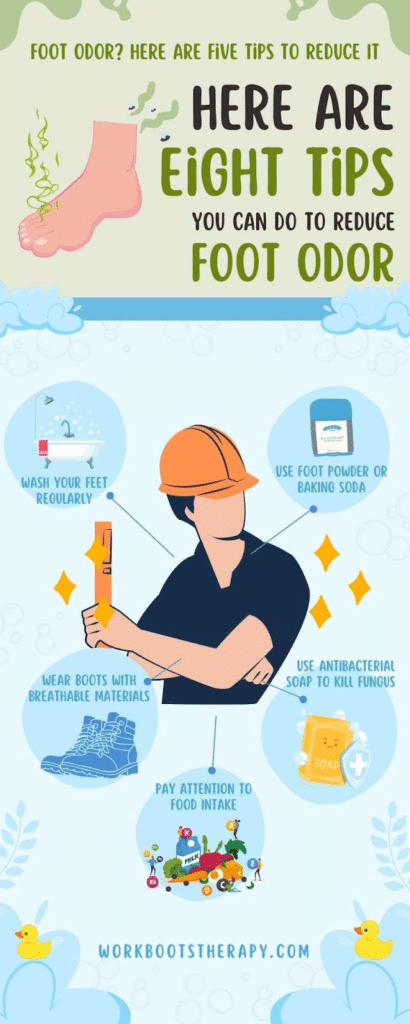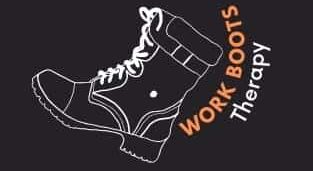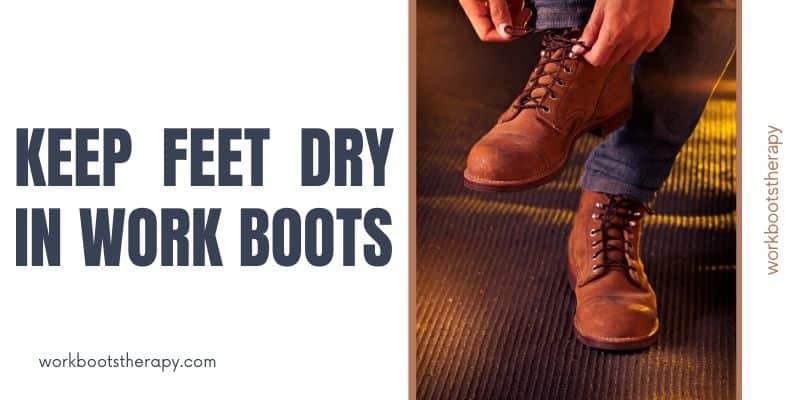Have you ever found yourself constantly ruining pairs of socks due to excessive foot sweating? Or maybe you’ve experienced the embarrassment of having smelly feet? If so, you’re not alone. Foot sweating is a common problem that affects many people. Not only is it unpleasant, but it can also be a source of self-consciousness and discomfort.
However, the good news is that foot sweating is treatable. Understanding the cause of foot sweating is the first step toward finding a solution. Combat excessive sweating and maintain your feet’s dryness and pleasant scent with our comprehensive guide! Here, I’ll provide you with actionable advice to help prevent foot perspiration while keeping your feet in top condition.
Causes of Foot Sweating
Excessive foot sweating, medically known as plantar hyperhidrosis, can be triggered by various factors. Understanding the causes of foot sweating is crucial in determining the appropriate treatment and management strategies. Here, we will explore the primary contributors to foot sweating and perspiration-related concerns.
- Plantar Hyperhidrosis: This medical condition is characterized by overactive sweat glands in the feet. It can be genetic or develop spontaneously and leads to excessive sweating beyond what is necessary for temperature regulation.
- Poor Lifestyle Habits: Certain lifestyle choices can contribute to foot sweating. These include wearing improper footwear that hinders airflow and traps moisture, leading to increased perspiration. Additionally, excessive alcohol and caffeine consumption can stimulate the sweat glands, resulting in heightened foot sweating.
- Medical Conditions: Several medical conditions can cause or exacerbate foot sweating. Hyperthyroidism, a condition characterized by an overactive thyroid gland, can disrupt the body’s normal sweating mechanisms. Menopause, due to hormonal changes, can also lead to increased sweating, including in the feet. Other conditions such as diabetes and heart disease can contribute to excessive foot perspiration.
- Stress and Anxiety: Emotional stress and anxiety can trigger overactive sweat gland activity, leading to excessive sweating in various parts of the body, including the feet. This stress-induced sweating can be particularly noticeable during high-pressure situations or moments of intense anxiety.
- Nervous System Disorders: Disorders that affect the autonomic nervous system, such as Parkinson’s disease, can disrupt the body’s sweat regulation, leading to excessive sweating in the feet.
- Medications: Certain medications, such as antidepressants, antipsychotics, and some blood pressure medications, can have a side effect of increased sweating. This can affect various parts of the body, including the feet.
- Obesity: Excess weight can lead to increased sweating in general, including in the feet. The additional body mass can cause the sweat glands to work harder to cool the body, resulting in heightened perspiration.
- Infections and Skin Conditions: Fungal infections like athlete’s foot can cause excessive sweating and unpleasant foot odor. Skin conditions such as eczema and psoriasis can also contribute to increased perspiration.
Importance of Good Hygiene
Maintaining good hygiene is crucial when it comes to preventing foot sweating and its accompanying discomfort. By prioritizing proper foot hygiene, you can minimize excessive sweating, reduce unpleasant odors, and keep your feet in optimal condition. Here’s why good hygiene is so important:
- Reduction of Bacteria: Good foot hygiene helps eliminate bacteria that thrive in warm and moist environments, such as sweaty feet. Regularly washing your feet with antibacterial soap helps remove dirt, sweat, and bacteria, reducing the risk of infections and foot odor.
- Prevention of Fungal Infections: Fungal infections like athlete’s foot are more likely to occur in damp environments. Practicing good hygiene, including thorough drying of your feet, helps prevent fungal growth and reduces the risk of these infections. Clean feet are less susceptible to fungal overgrowth and the discomfort it brings.
- Control of Excessive Sweating: By keeping your feet clean and dry, you can help control excessive sweating. Proper hygiene practices, such as washing and drying your feet thoroughly, can help regulate sweat production and maintain a more comfortable environment for your feet.
- Odor Prevention: Unpleasant foot odor often accompanies excessive sweating. Regular foot hygiene, including cleaning and drying your feet properly, helps minimize odor-causing bacteria and keeps your feet smelling fresh and clean.
- Maintenance of Skin Health: Good foot hygiene contributes to overall skin health. Cleaning your feet regularly helps remove dead skin cells, reducing the risk of calluses, dryness, and cracking. Well-maintained skin is less prone to discomfort and infections.
- Comfort and Confidence: Clean and fresh feet contribute to personal comfort and confidence. When your feet are well-groomed, free from excess sweat and odor, you can go about your day without worrying about discomfort or self-consciousness.
- Prevention of Secondary Complications: Poor foot hygiene can lead to various secondary complications. Excessive moisture can cause maceration (softening) of the skin, making it more susceptible to blisters, abrasions, and other foot-related issues. By practicing good hygiene, you can minimize these risks and maintain healthy feet.
Related Post: Clean Your Work Boots
Tips for Stopping Foot Sweating and Keep your Feet Dry

If you’re struggling with foot sweating, here are some tips that might help you:
1. Wear Well-Fitted and Breathable Boots
Choose boots that fit properly and are made of breathable materials such as leather or mesh. This allows air to circulate your feet and reduce moisture that can cause odor.
2. Use Breathable Socks
Wear socks made of natural fibers like cotton or wool to help absorb moisture and prevent odor. Avoid synthetic fabrics that can trap moisture and cause bacteria to thrive.
Related Post: How Long are Work Boots Good for
3. Use Deodorizing Feet Wipes
Clean your feet regularly using deodorizing feet wipes to reduce bacteria that can cause odor. These wipes also help to refresh your feet and keep them clean and dry.
4. Use Clinical-Strength Antiperspirant
Apply clinical-strength antiperspirant on your feet to control excessive sweating. Look for products containing aluminum chloride hexahydrate, which is effective in reducing sweat production.
5. Sprinkle Cornstarch Inside your Boots
Sprinkle cornstarch or talcum powder inside your boots to absorb moisture and reduce odor. This helps to keep your feet dry and comfortable throughout the day.
6. Soak your Feet in a Solution of Sea Salt or Tea Tree Oil
Soak your feet in a solution of warm water and sea salt or tea tree oil to help control sweat and reduce odor. These natural remedies have antifungal and antibacterial properties that can help to eliminate foot odor.
7. Check for any Fungal Infections
Check your feet for any signs of fungal infections such as athlete’s foot. These infections can contribute to foot sweating and odor and should be treated promptly.
Related Post: How to Get Work Boots to Not Stink
8. Allow your Feet to Breathe
Give your feet some time to breathe and air out by going barefoot or wearing sandals when it’s safe to do so. This helps to reduce moisture and prevent bacteria from thriving on your feet.
9.Use Foot Powders or Antifungal Sprays
Apply foot powders or antifungal sprays to your feet before putting on socks and shoes. These products help absorb moisture, control odor, and prevent fungal growth.
10.Change Socks Regularly
Change your socks throughout the day, especially if your feet tend to sweat excessively. Fresh socks can help keep your feet dry and minimize odor.
11. Use Moisture-Wicking Insoles
Consider using moisture-wicking insoles inside your boots. These specialized insoles draw moisture away from your feet, helping to keep them dry and comfortable.
12.Wear Moisture-Wicking or Antimicrobial Socks
Invest in moisture-wicking or antimicrobial socks designed to combat foot sweat and odor. These socks are specifically designed to keep your feet dry and reduce bacterial growth.
13.Practice Proper Foot Hygiene
Wash your feet daily with antibacterial soap and warm water. Pay special attention to the spaces between your toes and thoroughly dry your feet afterward.
14.Rotate Your Shoes
Avoid wearing the same pair of shoes every day. Allow them to dry out completely between uses by rotating between different pairs. This helps prevent moisture buildup and reduces the risk of odor-causing bacteria.
15.Consider In-Shoe Inserts
Try using specialized in-shoe inserts, such as activated charcoal or cedarwood inserts, which help absorb moisture and neutralize odor.
16.Stay Hydrated
Drinking plenty of water helps regulate body temperature and can reduce overall sweating, including in the feet. Stay hydrated throughout the day to minimize excessive foot sweating.
17.Manage Stress
Find healthy ways to manage stress, as emotional stress can contribute to increased sweating. Engage in relaxation techniques, such as deep breathing exercises or meditation, to help keep stress levels in check.
18.Consult a Healthcare Professional
If home remedies and lifestyle changes don’t alleviate your foot sweating, consider seeking advice from a healthcare professional. They can evaluate your condition, identify underlying causes, and recommend further treatment options, such as prescription-strength antiperspirants or medical interventions.
Remember, everyone’s body is unique, so it may take some trial and error to find the strategies that work best for you. With patience and persistence, you can find effective ways to manage foot sweating, keep your feet dry, and maintain overall foot health.

Summary of the Solution
Taking care of our feet and managing excessive sweating is an essential part of maintaining good hygiene and preventing unpleasant odors. By implementing some of the tips discussed, such as wearing well-fitted boots, using breathable socks, and practicing good foot hygiene, we can reduce foot sweating and keep our feet healthy and comfortable.
Moreover, for those experiencing extreme perspiration, Sweat Solver provides a reliable plan to halt excessive sweating and restore assurance. It’s essential to remember caring for our feet is self-care.

